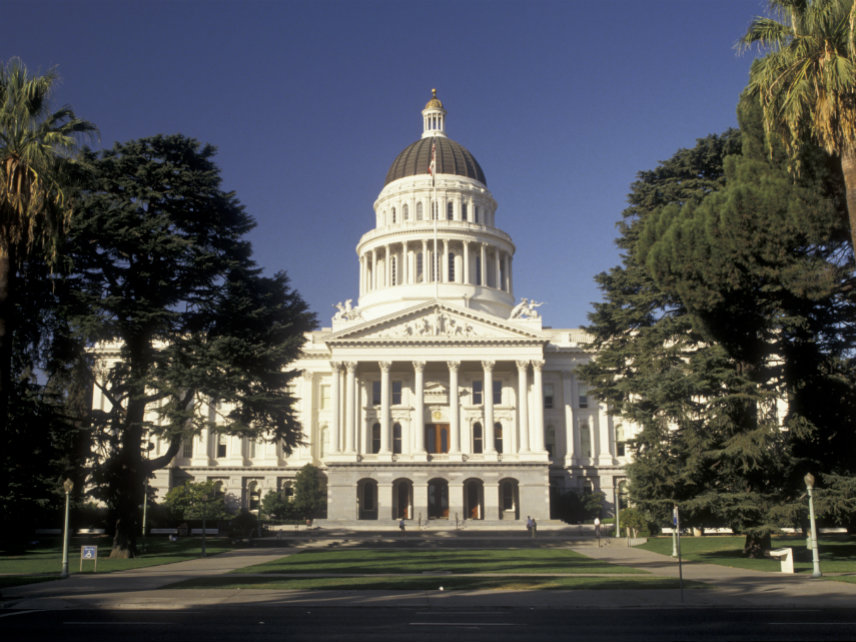Lawsuit: Californians Need More Representation, Not More Taxation
Instead of splitting the state into six parts, lawsuit proposes increasing number of state lawmakers to give voice to rural residents of the state.

In the autumn of 1774, with rumblings of revolt echoing through the 13 colonies, a group of men met in Philadelphia to propose a response to what many saw as an overbearing, unresponsive legislature in a distant land.
Among the ideas debated by that First Continental Congress, Pennsylvania delegate Joseph Galloway proposed creating an American parliament of delegates elected by the states that would have increased the political representation of the colonies without severing ties with England.
The Continental Congress rejected Galloway's idea. Other proposal approved by the Congress did not succeed in changing Brittish policy towards the colonies, and ultimately paved the way for the more famous meeting of the Second Continental Congress in Philadelphia during the summer of 1776. When in the course of human events, and so on.
Perhaps it's the proximity to Independence Day, but I couldn't help but think of Galloway's proposal when I read The New York Times' account of a lawsuit launched by a group of California activists who say their voices are not being heard by the state government in Sacramento.
With ongoing rumblings about potentially splitting California into multiple states (perhaps as many as six of them), the lawsuit—plaintiffs include several northern California towns, residents of those places, and a Native American tribe—seems like an attempt to forestall a radical redrawing of the map and increasing the number of legislative seats in order to give disenfranchised rural Californians a greater say in their government.
There needs to be greater representation in matters of taxation, the plaintiffs say—a sentiment that Galloway, Ben Franklin, Sam Adams, and the rest would recognize.
"I wake up in the morning and think, 'What is California going to do to me today?'" Mark Baird, one of the plaintiffs in the lawsuit, told the Times. "The majority should never be able to deprive the minority of their inalienable rights."
The lawsuit calls for increasing the number of seats from the current 120, but doesn't say how many seats there should be. The current 80 seats in the state Assembly and 40 in the state Senate were set back in the 1860s and never increased, even as the state's population boomed during the 20th Century.
I don't know that there is an optimal level of representation in state government. In fact it seems no one does since some states periodically consider the idea of shrinking their legislature. But there's no doubt California is an outlier.
With more than 978,000 people per state senator and more than 489,000 people per state representative, California is far and away the state with the largest ratio of people per representative. Texas is second, with one state representative for every 183,000 people. (Tiny New Hampshire is the most representative with one state lawmaker per 3,300 people) There are more Californians in the U.S. House of Representatives (53) than in the state Senate (40).
It's not exactly taxation without represetation, but you can understand why some parts of California feel ignored and want to break away from the rest of the state.
As the Times put it:
California's Great Red North is…a vast, rural, mountainous tract of pine forests with a political ethos that bears more resemblance to Texas than to Los Angeles. Two-thirds of the north is white, the population is shrinking and the region struggles economically, with median household incomes at $45,000, less than half that of San Francisco.
In the same state that is developing self-driving cars, there's the rugged landscape of Trinity County, where a large share of residents heat their homes with wood, plaques commemorate stagecoach routes and the county seat, Weaverville, is an old gold-mining town with a lone blinking stop-and-go traffic light.
Even if you think the idea of splitting California into multiple states is farfetched and political impossible (surely the people of 1770s London thought the idea of an independent American colony unlikely), Baird's complaint about minoirty rights is worth considering. Giving greater representation to rural parts of the state might help steer California back from the edge of political insanity.
If you're a resident of Colusa County, where the unemployment rate is currently 12.4 percent, and you're following what's happened in Seattle, San Diego, and elsewhere in the wake of minimum wage hikes, you have good reason to be concerned, scared, even, about what California's soon-to-be-implemented $15 per hour minimum wage will do. State lawmakers in Sacramento seem to forget that they are writing laws for every part of the state, not just the rich liberal enclaves stretching from the Golden Gate Bridge down the coast to the Hollywood Hills.
And it's not just the minimum wage. A recent 12-cent hike in the state's gasoline tax will disproportionately hurt rural residents who drive further to work, have fewer mass transit options, and tend to have older, less fuel efficient cars.
Environmental regulations make hunting and fishing more difficult and add to the cost of industrial jobs like logging and mining.
Like the other Founding Fathers whose names are more familiar to us today, Joseph Galloway might have something to teach us about the current political crises facing our nation. More representation—giving voice to those who feel voiceless in matters of taxation—isn't a cure for all political ills, but in California's case it might prevent an ugly breakup.


Show Comments (26)